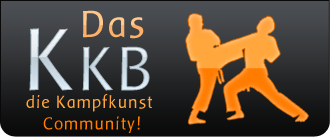J Dev Behav Pediatr. 2018 Jun;39(5):404-414. doi: 10.1097/DBP.0000000000000565.
Effectiveness of Chinese Martial Arts and Philosophy to Reduce Reactive and Proactive Aggression in
Schoolchildren.
Fung ALC1, Lee TKH.
OBJECTIVE:
This study examined the effectiveness of Chinese martial arts in reducing reactive and proactive aggressive behavior among
schoolchildren with a cluster-randomized trial.
METHODS:
A screening questionnaire was completed by 3511 schoolchildren of Grades 2 to 5 from 13 sites in Hong Kong. We shortlisted
298 children who scored z ≥ 1 on the total score of the Reactive-Proactive Aggression Questionnaire in their respective sites to participate in the experiment. They were divided into 31 clusters that were blinded and randomly assigned to one of the 4 conditions: skills only, philosophy only, skills and philosophy, and physical fitness (placebo). Subjects were assessed at baseline, posttraining, and 6 months after training using aggression scales.
RESULTS:
Results from the linear mixed model indicated that the time × training interaction effects were significant for aggressive behavior (reactive and proactive), delinquent behavior, anxiety/depression, and attention problems. Although all measures declined in all conditions over time, only the skills-and-philosophy condition showed a significant reduction at posttraining and/or 6-month follow-up compared with the placebo.
CONCLUSION:
The results provided a theoretical proof for the relationship between aggression and sport involvement combined with children's moral reasoning. This study gives practical implications to intervention that solely playing sports or teaching moral lessons is not effective enough for high-risk schoolchildren with aggressive behavior. However, combined traditional Chinese martial arts skills and moral philosophy training could be considered in the school curriculum to reduce school violence and facilitate creation of harmonious schools.




 Mit Zitat antworten
Mit Zitat antworten




